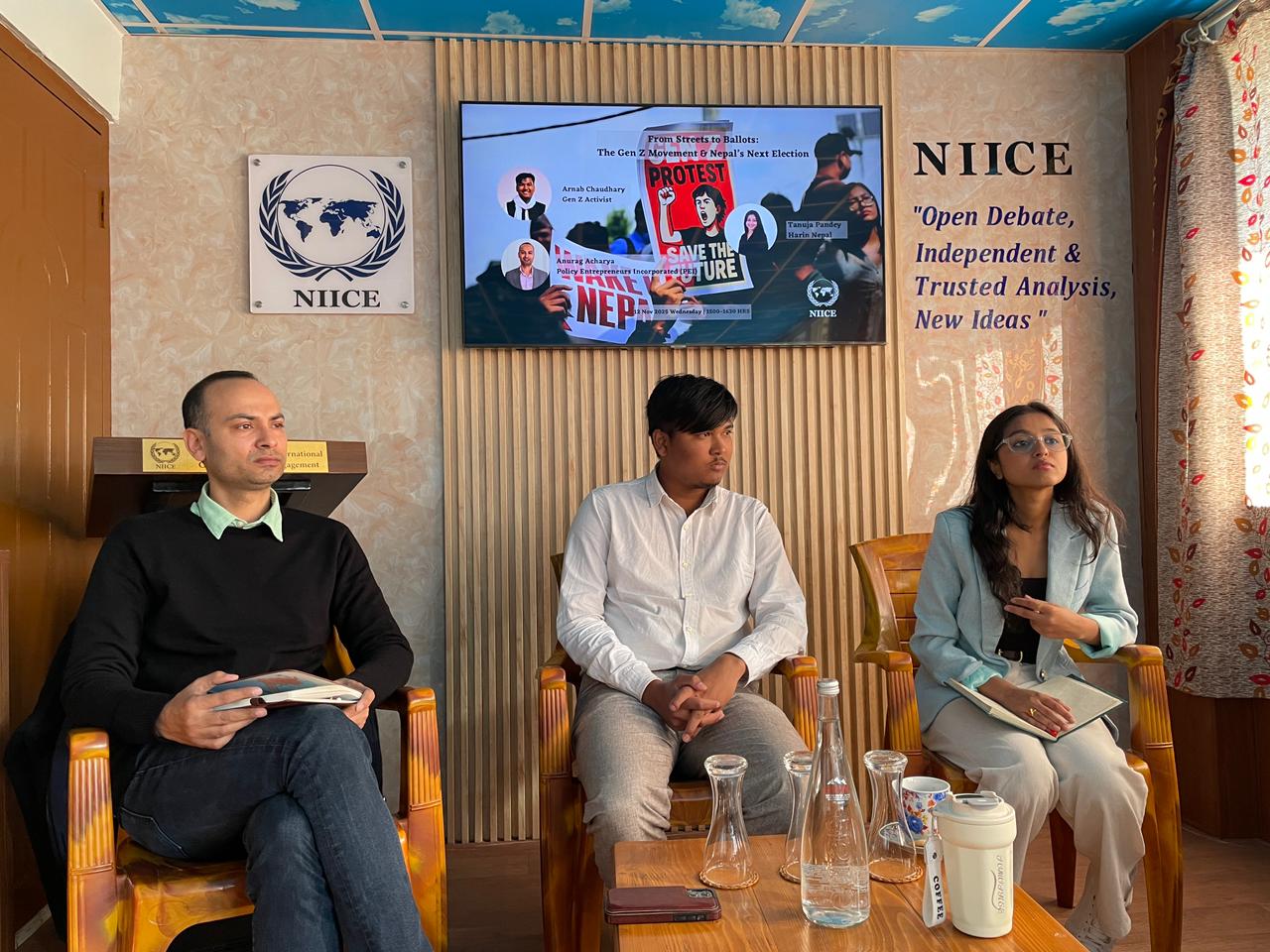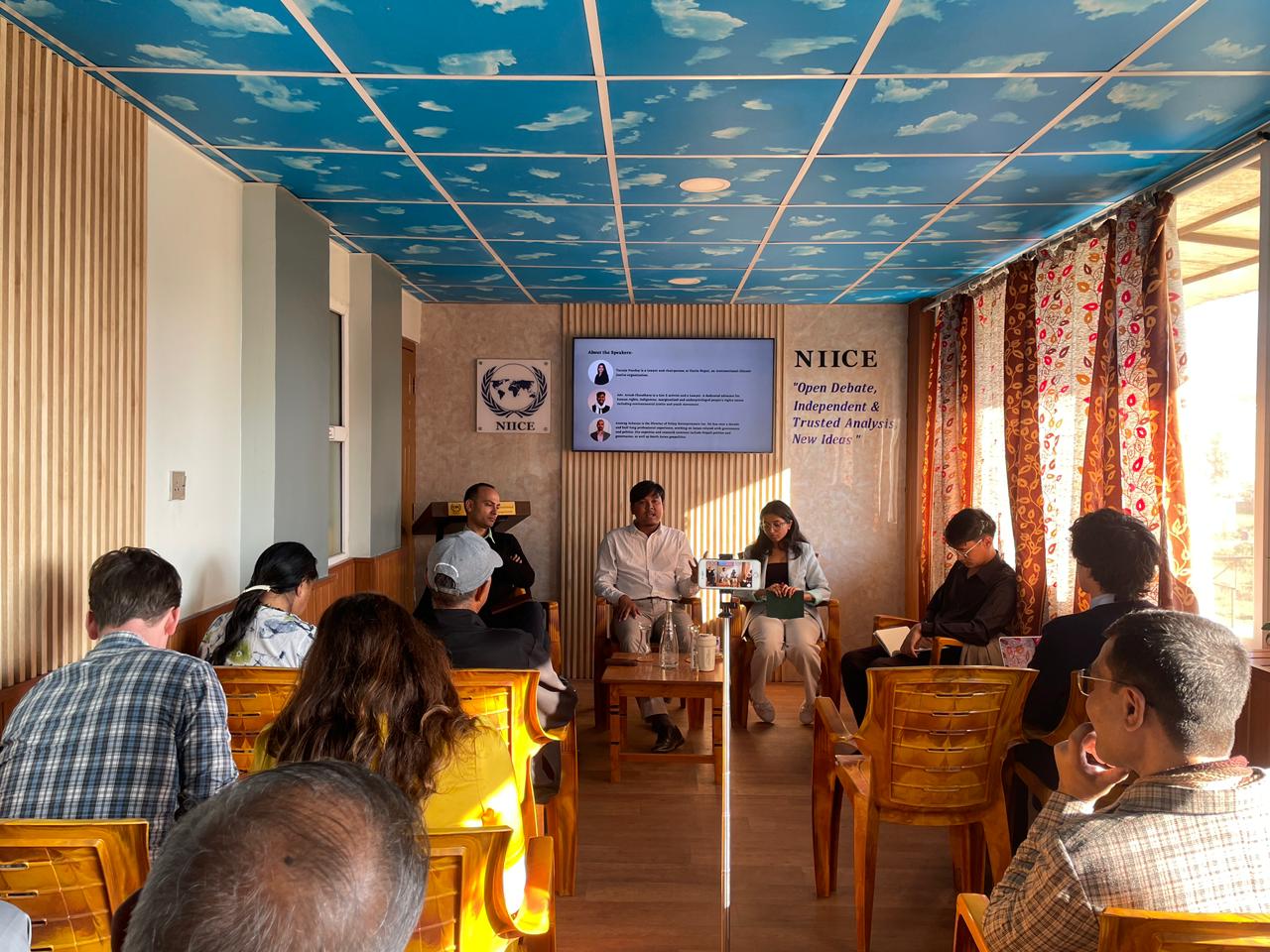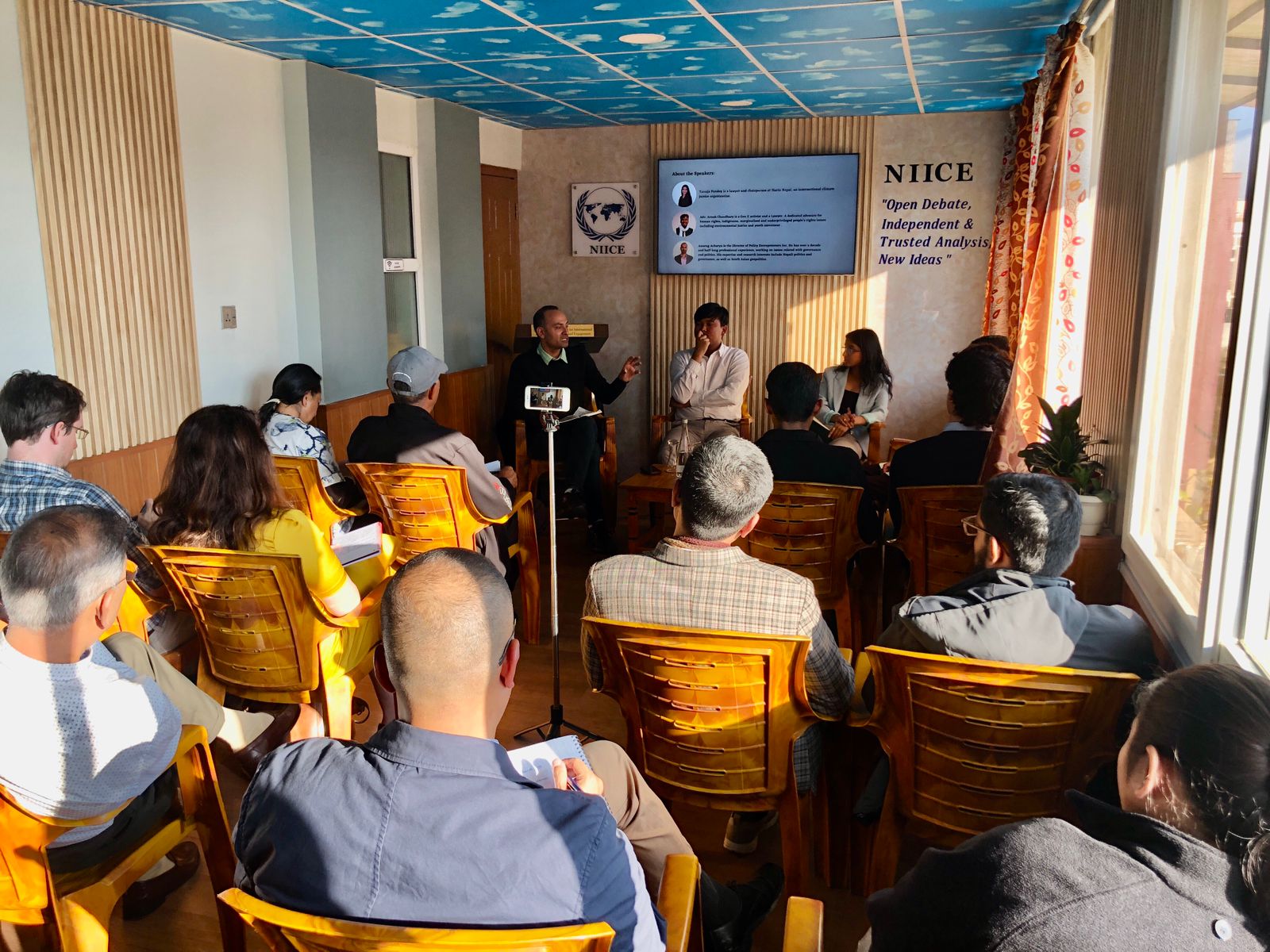From Streets to Ballots: The Gen Z Movement and Nepal’s Next Election

Kathmandu – On 12 November 2025, the Nepal Institute for International Co-operation and Engagement (NIICE) organized a discussion on “From Streets to Ballots: The Gen Z Movement and Nepal’s Next Election” at the NIICE Seminar Hall in Hattiban, Lalitpur.
Opening the session, Bibek Dhoj Thapa, the Program Co-Ordinator & Research Associate at NIICE, put forward his views on the recent Gen Z protest in Nepal and its implications for Nepal’s political landscape. He focused on understanding their expectations from the government and the upcoming elections, identifying participation barriers such as age restrictions, and examining the internal challenges, such as the difficulty of forming a common umbrella.
Tanuja Pandey, Gen Z Activist, highlighted that Nepal’s Gen Z stands united for common causes, yet different political ideologies persist, describing the movement as driven by frustration with systemic failures. Pandey emphasized that Gen Z demands an advanced democracy, where justice is accessible, inequality is not normalized, and the political system truly serves the people. She also stressed that Gen Z has been on the streets much before September 8, and they have always advocated for creative ways of protest, like hugging trees, reading books, among many others.

Arnab Chaudhary, Gen Z Activist, noted that intergenerational dialogue in Nepal remains limited and questioned the narrow narrative portraying Gen Z as privileged and detached from struggle, reminding them that they grew up amid the civil war followed by other movements in the country.
Highlighting regional disparities in access to technology and opportunities, he emphasised that despite differences, Gen Z across Nepal shares concerns over corruption, bad governance, and undemocratic practices. He condemned state-sponsored violence and clarified that Gen Z has lost faith in the system’s flaws, not in democracy or federalism itself.
Anurag Acharya, Director of Policy Entrepreneurs, Inc. (PEI), Nepal, recalled the 2006 movement and contrasted it with today’s protest, then supported by political leaders and civil society, now led solely by young students. Expressing disappointment that past sacrifices failed to deliver promised change, he noted that Gen Z, unlike previous generations, is unwilling to wait. He urged Nepal’s Gen Z to question inactive civil rights groups, which were very active during the 2006 movement and other movements after that.

During the Q&A session, Arnab Chaudhary concluded by stressing that the Gen Z group are just scattered across the country and not divided. It would be very wrong to say Gen Z are divided. It is better if we say that we are working more in a networked format rather than in a division.
When asked why Tanuja did not fight back against the misinformation and disinformation campaign waged against her, she said that it was more important to raise her voice for justice and keep the spirit of the movement alive rather than focus on other issues.
Acharya shed light on Bangladesh’s youth-led July Charter and drew comparisons and differences between Bangladesh and Nepal’s post-revolution scenarios. He pointed out that the youths of Bangladesh are asking to limit the power of the executive of the state and asked what the stance of Nepal’s Gen Z is regarding the same.
